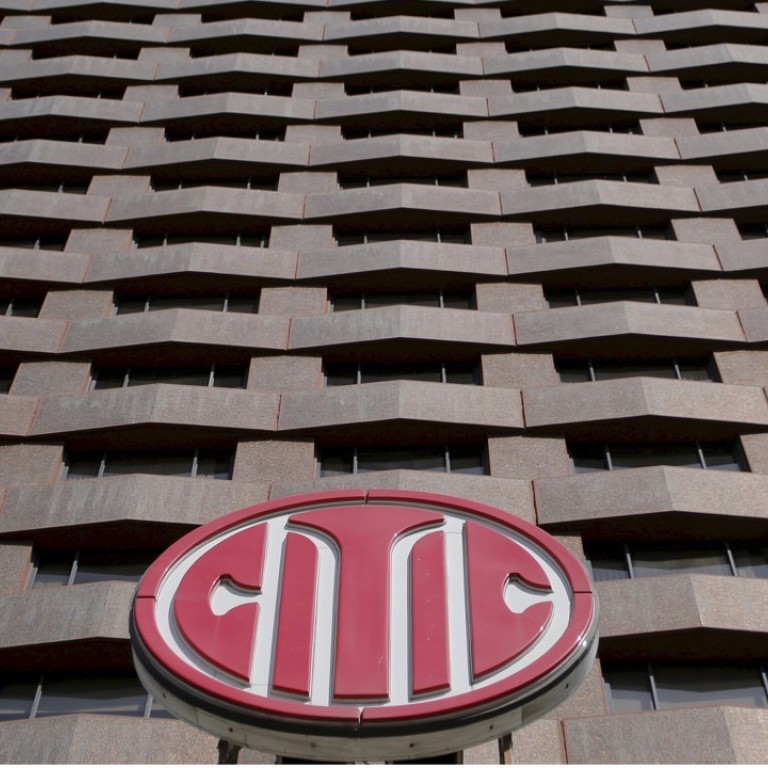
Citic may halt world's largest magnetite iron mine as it faces trouble Down Under
China’s biggest conglomerate claims its local partner’s ‘refusal to cooperate’ risks the project’s sustainability
Citic, China’s largest conglomerate, risks having to suspend production at its troubled US$10 billion iron ore project in Australia because of its partner’s “refusal to cooperate”, its chairman warned after the firm unveiled higher interim profit.
The problems faced by Citic – the earliest and largest Chinese investor in Australia according to chairman Chang Zhenming – highlight some of the challenges confronting mainland firms that heeded Beijing’s call to venture abroad to secure natural resources for the nation’s development a decade ago.
The Sino Iron project in Western Australia state, which suffered years of construction delays and budget overruns, has been at the centre of long-running legal disputes between Citic and Mineralogy, owned by Australian businessman Clive Palmer, over production royalty payments.
Mineralogy, which owns the mining tenement, has refused to get the necessary government approvals required for waste storage, Citic has claimed.
“Mineralogy’s refusal to cooperate means we will run out of space for waste and tailings storage in the near future. This will severely constrain operations and impact Sino Iron’s sustainability,” Chang told reporters on Tuesday.
“In the worst case, we will need to stop operating which is what none of us wants to see. The risk is real.”
Repeated attempts by the Post to contact Mineralogy on Tuesday went unanswered.
Palmer’s lawyer told an Australian court earlier this year that Mineralogy’s decision to withhold the approvals – which would provide access to additional storage space – stemmed from the fact it was not being paid royalties it claims are due from Citic.
The project, on which Citic has so far written off US$5.9 billion to reflect poor profit outlook, expects to produce 15 million tonnes this year.
While this is much higher than the 11 million tonnes produced last year, it is well short of the project’s 24 million tonnes capacity.
High utilisation is the key for it to make a profit because of the higher processing costs of the type of ore being mined.
Citic on Tuesday posted a 60 per cent annual rise in net profit attributable to shareholders to HK$32.3 billion for the first six months of 2017.
That increase was driven by higher earnings from property sales, a HK$2.7 billion accounting gain from selling a stake in a football club it controls and non-recurrence of a HK$4.78 billion loss last year on some residential property assets sold to rival China Overseas Land & Investment.
Excluding the gain and last year’s residential property loss, pre-tax profit increased 5.2 per cent to HK$51 billion.
The board proposed an interim dividend of 11 HK cents per share, up slightly from 10 cents last year.
First-half net profit from financial services fell 2.9 per cent year-on-year to HK$21.3 billion.

Excluding the impact of a gain on an investment and of the yuan’s devaluation against the Hong Kong dollar, profit rose 2 per cent with higher insurance and trust, and commercial banking profits offsetting lower investment banking profit.
A net loss of HK$284 million was recorded at its resources and energy operations, however, compared with a profit of HK$911 million last time, despite a sharp rebound in the prices of oil and metal prices, as well as higher contribution from a copper mine in Peru.
This is because major costs, previously capitalised and not reflected in its profit and loss statement, were booked from its iron ore project which entered commercial operation in last year’s second half. Manufacturing saw a 9.7 per cent net profit rise to HK$1.8 billion thanks to its booming special steel business, while engineering contracting profit dived 70.8 per cent to HK$310 million.
Its property operations booked a net profit of HK$5.7 billion, up from only HK$5 million in the year earlier period, thanks to the sale of two office buildings in Shanghai.
Citic shares finished Tuesday 1.9 per cent higher at HK$12.1, compared with a 0.4 per cent fall in the Hang Seng Index.

